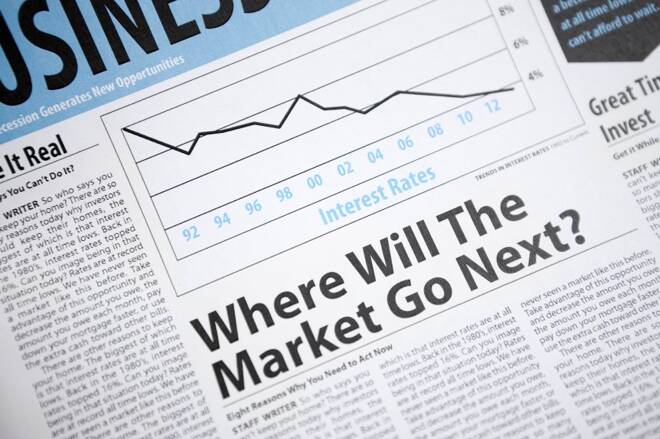Advertisement
Advertisement
Stocks are Jittery Ahead of U.S. Russia Meeting
By:
European stock markets are mixed, after a mixed session in Asia, where Japan underperformed as a strong Yen continued to weigh on exporters and
European stock markets are mixed, after a mixed session in Asia, where Japan underperformed as a strong Yen continued to weigh on exporters and financials. Volatility has picked up and investors remain jittery amid geo-political tensions, but while the Nikkei closed with a -1.04% loss markets were up from earlier lows and the Hang Seng managed a late rally and closed up 0.93%, while other markets were narrowly mixed at the close. The DAX is currently up but the FTSE is lower with Spain and Italy underperforming slightly amid lingering risk aversion. U.S. stock futures are moving higher and WTI is continuing to move higher and currently at USD 53.62 per barrel, following an unexpected decline in crude oil inventories.
Ahead of a meeting between the U.S. Secretary of State and his counterpart in Russia, there has been verbal barbs that have been thrown from each side. Tillerson stated that Russia was covering up the Syrian government’s use of chemical weapons on its own people. Sergei Lavrov warned the U.S. that there should be no more strikes on Syria.
WTI crude prices are at fresh five-week highs, presently showing a gain of 0.4% gain, at $53.72 and setting up an seventh consecutive up day and recovering nearly all of the sharp declines seen during March. A WSJ report yesterday said that Saudi Arabia has told other producers to extend supply cuts into the second half of the year. The American Petroleum Institute also reported an unexpected draw in crude oil and larger than expected declines in gasoline and distillate stocks.
German Institute Says the ECB Should Phase Out QE
German Institutes says that the ECB should phase out QE from 2018. Germany’s leading economic institutes urged the government to reduce taxes and social security contributions, which currently exceed 40% of GDP. In their joint spring economic report, the also urge Merkel and Co to improve investment conditions, as the jobless rate is forecast to decline to just 5.4% by 2018 and the budget surplus to decline to 0.5% of GDP next year from a forecast 0.8% next year.
At the same time the institute said the ECB “should let the purchase program expire from the beginning of 2018, provided that the economic recovery proves to be sustainable”, while “a first increase in the interest rate is then probably only indicated toward the end of the forecast period”. More pressure than on Draghi to focus on tapering, although with real tapering only advocated to start from the beginning of next year, that would leave the current ECB schedule intact and tallies with our expectation that the ECB will let the current schedule run and then announce a QE phasing out schedule in December for next year.
About the Author
David Beckerauthor
David Becker focuses his attention on various consulting and portfolio management activities at Fortuity LLC, where he currently provides oversight for a multimillion-dollar portfolio consisting of commodities, debt, equities, real estate, and more.
Advertisement
